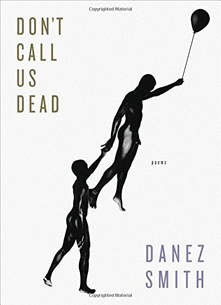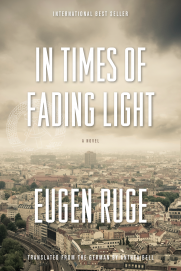Temptation, angst, and lunacy all rear their heads as Sheena Patel explores the obsession that comes with unrequited love in her debut novel I’m a Fan. The fan in question is an unnamed narrator who has wrapped herself up in an affair with an aloof, womanizing older man. Patel, an established poet, chronicles the bad decisions of the unnamed narrator through blunt but enticing prose. Patel puts stock into the power of fan presence, linking political influence to the number of devoted followers one has. The narrator, a woman of color with little recognition, pales in comparison to the white female influencers with whom she must compete. She speaks to privilege packaged as #goals, to algorithms and whiteness discounting indigenous and black and brown creators, and to the universal immature desire to be liked.
0 Comments
After seeking help from numerous doctors and specialists, Esme Weijun Wang couldn’t shake the feeling that something was being missed.
Finally, there was a breakthrough during her college years when she was first diagnosed as bipolar the summer before she left for New Haven. And then when her medical records were sent to Stanford she explains, “In the referral authorization itself, I was listed as having two diagnoses: schizoaffective disorder, bipolar type and idiopathic peripheral neuropathy. There was no mention of fibromyalgia, complex PTSD, dysautonomia/POTS, chronic Lyme disease, or any of the other diagnoses I’d received over the years” (185). Esme Weijun Wang’s 2019 essay collection The Collected Schizophrenias is an engaging journey that deals with a serious topic. The book does a thorough job of educating the reader in this area of health that is commonly misunderstood. The relationship between the author and the text is beautifully captured by including both clinical information and her own personal struggles and triumphs.
Glass.
The word itself evokes fragility, as well as a certain sense of clarity. It’s easy to conjure the image of stained glass windows in a cathedral, or worn sea glass on the edge of a sprawling beach: both images clear, both images concrete. But what is really “clear” this day in age? Dobby Gibson’s fourth collection of poetry, entitled Little Glass Planet, asks this very question.
One aspect that makes poetry such a powerful form is how it is often used to tackle pertinent and even controversial topics. Race and sexuality are two timely issues, and Danez Smith tackles both of them in his book of poetry Don’t Call Us Dead. As a gay, black man in America, Smith has a unique perspective that shapes much of what he writes. In some ways, his poems speak to a very particular demographic and yet, they ring true for larger audiences.
My generation comprised the last of the Cold War Kids, and the Communist Bloc was still a very real thing during my childhood. It didn’t matter if we were talking about soldiers or scholars, presidents or peasants; any person beyond the Berlin Wall was the enemy. It was inconceivable to us that anyone who lived on the other side of the Iron Curtain could be painted as anything but “Godless Communists”. Yet that is exactly what Eugen Ruge did in his out-of-the-gate hit In Times Of Fading Light, which spans almost sixty years of family and national history.
|
Archives
July 2024
Categories
All
|
|
Glassworks is a publication of Rowan University's Master of Arts in Writing 260 Victoria Street • Glassboro, New Jersey 08028 [email protected] |
All Content on this Site (c) 2024 Glassworks
|






 RSS Feed
RSS Feed
